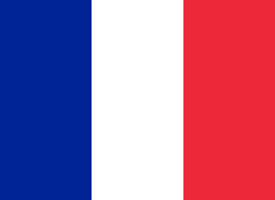Towards Tabriz:
The first 30 km. after the border were the easiest we’ve ever done – all downhill from the mountains in Turkey to the Iranian steppe. The arid steppe was made up of steep mountains and dry, cracked earth, brown except for where rivers ran and added green trees. Large sunflower fields, mostly cut down at this time of year, characterized the first 150 km. Groups of men, women, and children sat alongside the road, beating the large heads of the sunflowers with sticks to shake the black seeds loose. We were given two heads, and boy, are they ever heavy! There seemed to be few villages and few people here in the province of East Azerbaijan, where the people mostly spoke Turkish. The region seemed to be populated mostly with shepherds and their flocks or herds. Most of the area was one big campground. This area seemed to be populated by dead animals. Though we didn’t see many, there was the nose-wrinkling smell of rotting flesh everywhere.
Towards Marand, about 75 km. before Tabriz, we saw many orchards and green fields, mostly tomato patches. The roads were lined with makeshift wooden huts to sell the produce. There were streams and small rivers here. All along the road were abandoned and crumbling houses, shops, and walls. Those that still had some activity seemed to be mostly garages.
A lot of the road was easy, but we also had the hardest climb and steepest mountain pass we had ever crossed: 2400 ft. in 12 mi. It took us almost 2 1/2 hours to climb 5.5 mi. – at an average rate of 2.7 mi./hr.! I was very, very hot with my headscarf, hat, and long shirt. This was the never-ending hill, where people apparently came to test their cars.
The last 60 km. to Tabriz, encumbered by increasing traffic, was rather uninteresting except for the red mountains. But it was easy, mostly downhill. We average 23 kph over a 2 1/2 hr. time period – our fastest ever!
The roads are new, the cars are old, and the few villages we passed along the way had crumbling rock houses the sandy color of the mountains. Thank God we were here in September and not during the summer months, because even with the cooler weather, it was still quite hot with my heavy, long-sleeve shirt, my scarf, and my hat. It’s not biker-friendly. Stephane had it much easier.
The People:
There is definitely an anti-American rhetoric on the part of the establishment, but this does not apply to all of the Iranian people. During the time that we biked to Tabriz, we encountered no anti-American speech or sentiment – a nice change from Syria. On the contrary, the people we met seemed rather open and receptive. The first man we met told us he was happy that Americans could come to Iran and wishes that the government would let more Americans and foreigners into the country. His uncle had worked with American engineers in Teheran before the Revolution and had told him that the people were nice. He was happy that the government had removed Saddam Hussein from power. We met a few who had sons and daughters in America and hope to go one day.
One had great questions, peppering Stephane with things like, “Why do the French like Armenia?” and “What do you think about Iranian technology?” As to the first question, when Stephane responded, “Why not?” he said, “They’re Communists.” And as to the second, when Stephane said he didn’t know, hadn’t seen any, the man waved his arm expansively at the fields and brown mountains around him, saying, “It’s everywhere.” Perhaps it was in the “technological” sticks that the villagers beat their sunflowers with!
A bus driver, Massoud, invited us to dinner at his house, which his wife served to us on the Persian rugs, holding her flowered chador closed with her teeth. After dinner, the entire family came over to meet us, and Massoud’s young sisters insisted I take my headscarf off for the photos. As they were leaving, they kept repeating with big smiles on their faces, “I love you! I love you! I love you!”
The following day, as I stopped at the top of a mountain to fix my headscarf, which was blowing off in the wind, a car pulled up beside us and its occupants, Ali and Shamsey, invited us to tea at their place. We started out with tea and fruit and ended up at a kebab joint in town, where an ancient man in a skullcap waved a burning pot of incense in our faces to offer prayers. They took us to a Zoroastrian site in the city where we found ancient pieces of pottery and big bones jutting out of the mud hills.
Ali is trying to immigrate either to the US or to Canada because he doesn’t want his daughter, Nikki, to grow up in Iran, where he perceives that women’s rights are limited. Ali has an incredible command of the English language, learned from watching prohibited American movies from an illegal satellite, and his accent is impeccable. He and Shamsey, an English teacher, were friendly and from a comfortable family, fairly progressive. They invited me to take my headscarf off and I was allowed to wear a T-shirt in the house.
Before leaving their house the next day, Shamsey called her brother in Tabriz, who offered to show us around the city.


